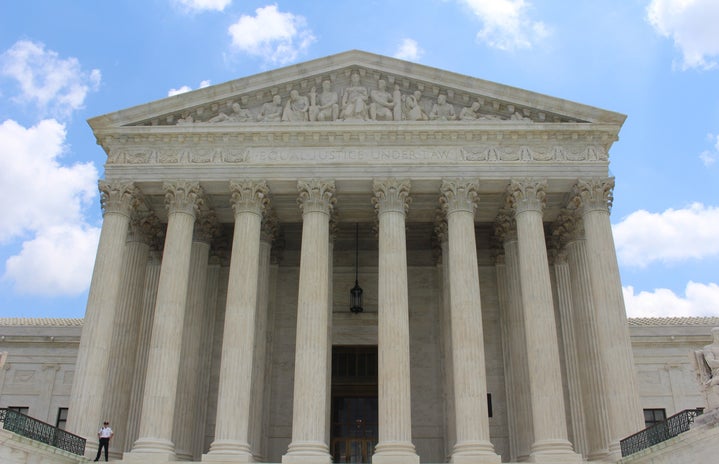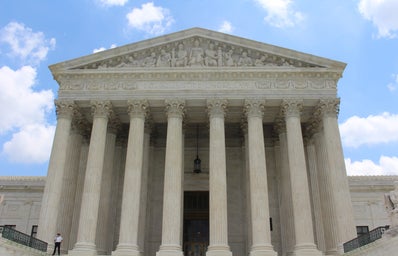If you didn’t know, the 2022 Supreme Court term began on Oct. 1, and this term the Court has granted cases that will argue many salient and non salient cases. The constitutionality of many important issues are being considered, specifically regarding the scope of the Clean Water Act of 1972, federal restrictions on voting rights, affirmative action in higher education and free speech in working with same-sex couples.
Haaland v. Brackeen
Haaland v. Brackeen is a case that will argue over the constitutionality of the Indian Child Welfare Act. The act that was passed in 1978 issues adoptive placement preferences. It will be argued that there is unconstitutional discrimination on the basis of race in the placement of “Indian children” in non-Indian adoptive households. Notable amicus briefs have been filed from groups like the Cherokee Nation, Navajo Nation, the state of Texas, state of Ohio and the Christian Alliance for Indian Child Welfare.
Merrill v. Milligan
Voting rights issues have been prevalent in the United States for decades. Merrill v. Milligan re-evaluates the 2021 restricting plans in Alabama which impacted seven House of Representatives seats. This case directly deals with the Voting Rights Act.
Sackett v. Environmental Protection Agency
The Clean Water Act was amended in 1972, and developed from the Federal Water Pollution Control Act of 1948, the first to acknowledge water pollution in the United States. This act broadened the role of the EPA and created the foundation for regulating pollution in U.S. waters.
Sackett v. Environmental Protection Agency will argue over the decision in the US Court of Appeals for the 9th Circuit. The case will decide whether wetlands are included in the Clean Water Act, 33 U.S.C. §
Students for Fair Admissions v. President and Fellows of Harvard
Students for Fair Admissions v. President and Fellows of Harvard would determine whether Grutter v. Bollinger would be overruled. Grutter v. Bollinger established in 2003 that the use of race in admissions is not unconstitutional and is not prohibited by the Equal Protection Clause or Title VI.
This upcoming case will either reaffirm or overrule precedent that allows higher education to utilize race as a factor in admissions. Additionally, Students for Fair Admissions v. President and Fellows of Harvard will determine if Harvard violates the Civil Rights Act due to their admissions treatment of Asian American applicants.
United States v. Texas
Two fundamental government entities are on opposing sides in United States v. Texas. This case will rule on President Biden’s revised immigration policy is unconstitutional and violates the Administrative Procedure Act. The Administrative Procedure Act establishes the way federal agencies create and implement regulations.
303 Creative LLC v. Elenis
303 Creative LLC v. Elenis is a salient case about compelling free speech contradicts free speech in the First Amendment for same-sex couples. Similar to the Masterpiece Cakeshop v. Colorado Civil Rights Commissionin 2018, which ruled that a wedding cake baker was using his freedom of speech in denying to bake a cake for a same-sex couple. 303 Creative LLC v. Elenis will decide if a similar case— compelling a wedding invitation artist to make invitations for same-sex couples.
Citizens throughout the country will be waiting for the decisions on this cases in the coming months, although many decisions for salient cases won’t be announced until May or June.


